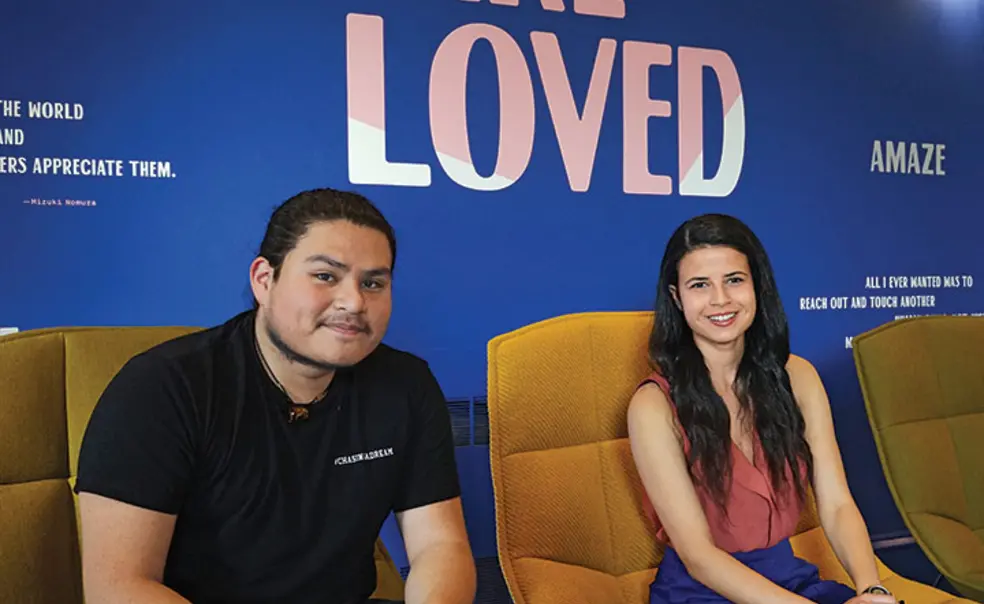One year after calling for the hiring of more Latino faculty members and a concentration in Latino studies, a group of Princeton students say there have been small improvements but more are needed.
“It’s one thing for academic institutions to let marginalized students in, but they also have to create an environment where those students can flourish, thrive, and feel empowered,” said Julian Perez ’17, president of the Princeton University Latinx Perspectives Organization (PULPO), a new group. (The term “Latinx” is preferred by some students because it is considered gender-inclusive.)
The creation of a Latino studies major is a top priority for PULPO: Last spring, the group surveyed student satisfaction with the Program in Latino Studies, a certificate program created in 2009. In October, PULPO reported on the findings, recommending that the University hire more tenure-track Latinx professors, offer more courses on Latinx issues, and change the name of the program from “Latino Studies” to “Latinx Studies ” or “Latino/a/x Studies.”
University statistics on the race and ethnicity of faculty members reported that 3 percent of professors in 2015–16 were Hispanic. Hispanic/Latino students made up 8 percent of the undergraduate student body and 5 percent of graduate students in 2015–16.
Bri Christophers ’17, a member of the Princeton Latinos y Amigos and Latinx Collective groups, said students want the University to diversify the entire faculty, not just certain departments.
Brandon Hunter GS, vice president of the Latino Graduate Student Association, agreed that the lack of a significant Latino presence among the faculty is an issue. Part of being successful in graduate school “is about establishing close mentorship,” Hunter said, “and also being able to see yourself or your future in the professors that you interact with and to have a number of professors who understand what you’re going through.”
Christophers and Perez said that despite meetings with administrators last spring, they have been disappointed by Princeton’s response to their concerns. They cited an incident in September, when a group of students hosted a “Mandatory Makeout Mexican Mustache Monday Madness Fiesta” in an upperclass dorm for the second consecutive year. Students reported the incident to administrators and said party participants should be held accountable.
LaTanya Buck, the University’s new dean for diversity and inclusion, said Princeton’s policy is not to comment on specific student cases. But she said University officials are discussing how to respond to future experiences of bias in a way that supports affected students while educating and engaging the community as a whole.
“I want students to know that we take these incidents very seriously,” Buck said. “We care that they feel supported, included, heard, and valued here at Princeton.”
Dean of the College Jill Dolan said that some of the students’ recommendations are being considered as part of Princeton’s strategic-planning process. The general-education task force will address the requirement for a course on diversity, she said, and the administration’s response to the report of the task force on American studies “should signal some sort of direction in terms of expansions in [Latino studies].”
Perez, Hunter, and Christophers said the Fields Center is more welcoming after renovations last summer, which included installation of wall art depicting the stories of underrepresented Princetonians from the past. They also said that PULPO and the Latinx Collective provide opportunities for students to share their experiences on campus.
Princeton will hold a conference for Latino alumni on campus March 31-April 1, and Christophers said students look forward to conversations with alumni at the event.
“I think Princeton still sees diversity and inclusion on a very black/white binary, and being Latinx doesn’t fit neatly within that spectrum because most of us are mixed or are of mixed heritage,” she said. “I think the University hasn’t really grappled yet with how to include the Latinx community in these conversations.”
For the record
Bri Christophers ’17 is advocacy chair and former co-president of Princeton Latinos Y Amigos, a pan-Latinx undergraduate organization. Students also cited Princeton Latinos Y Amigos and the Latino Graduate Student Association as groups that provide opportunities to share campus experiences.












No responses yet